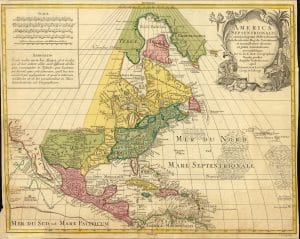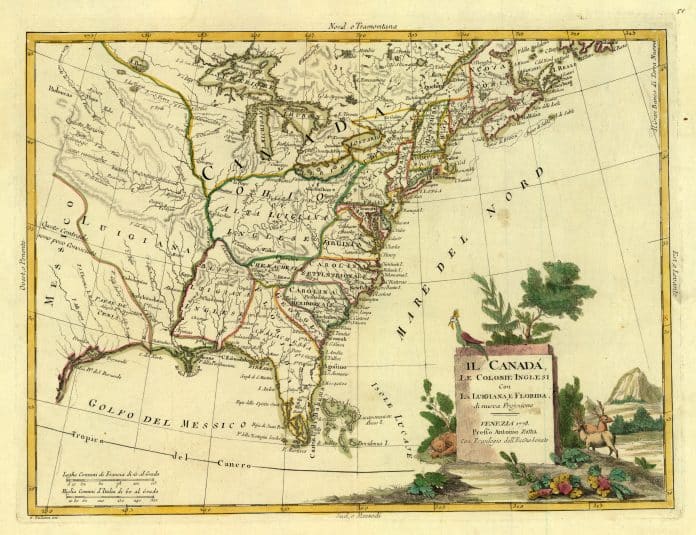The Fourth of July celebrates 13 North American colonies sending the Declaration of Independence to Great Britain. These colonies that would become the United States of America challenged the superpower of their time over unfair treatment.
What about the other British colonies in Continental North America? There were several colonies in Continental North America that sided with Great Britain: Nova Scotia, East Florida, West Florida, and Quebec (Due to Quebec’s special status, some historians do not include them as a colony). There were also smaller Canadian British outposts at Prince Edward Island and Newfoundland. These colonies each had different reasons for siding with Great Britain.
East and West Florida had only recently become a British Colony in 1763. The Spanish traded the Florida colonies for the Philippines and Cuba, which Britain had captured in the French and Indian War. The French and Indian War was between Britain and France, with the French allied with the Spanish and the British allied with the colonists. Indians were fighting on both sides of the war, so the name is, at best confusing. The recent acquisition of these colonies by the British did not allow for much time for the accumulation of grievances by the new colonists. Many of the residents of the colonies either predated the colony becoming British or had recently received their land from the crown. Nova Scotia was also where loyalists in the colonies relocated to after the Declaration of Independence.
Nova Scotia had a large presence of British soldiers and had recently seen the results of British protection in the French and Indian War. In addition, Nova Scotia had recently been the French colony of Acadia. When the British took over, they required the residents to swear allegiance to the crown, and thousands refused to do so and were deported. This purge of five to ten thousand formerly French colonists in the 1750s and 1760s resulted in a more loyalist-heavy Nova Scotia.
The American Revolutionaries had hoped to ally with the French in Quebec. In fact, many French Canadians did join the American forces, but the forces were never able to capture Quebec. The government of Quebec was worried that more French would be swayed to join the American Revolution, so they passed the Quebec Act. This act had significant concessions to the French Catholic population. The act removed the Protestant religion from the oath of allegiance as well as retaining French law for most civil matters, and restored the French means of distributing land and managing its use.
The thirteen colonies created a new nation that became an example for the rest of the world. The remaining colonies followed a different path. East and West Florida eventually became part of the United States, along with large portions of what was Quebec. The rest of the British colonies formed into Canada. This fourth of July, you can remember all the colonies that became America.


